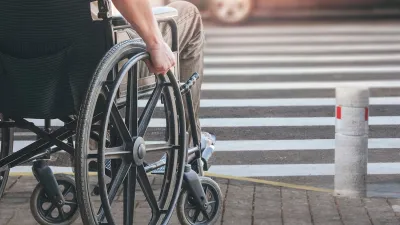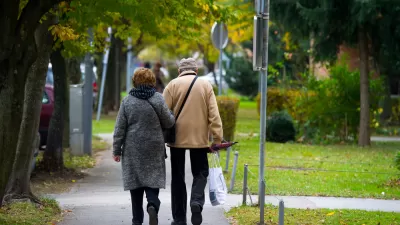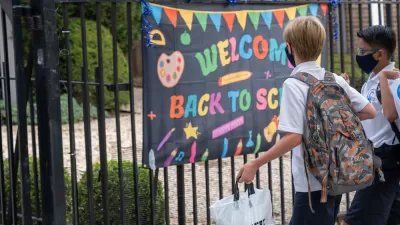A psychology site reviews Mental Health and Social Space: Towards Inclusionary Geographies, a book by Hester Parr that looks at new ideas in including (or excluding) people with mental disabilities from public spaces.
"In the post-institutional era of mental health care how are we to conceptualize "community care" and "the mental patient"? There are those who look back to the institutional era with a fond, usually rose-tinted, nostalgia; for others deinstitutionalization remains an ideal rather than a reality. The literature on psychiatry and mental illness shows increasing divergence. Even mainstream services have adopted "recovery" as a motif, there are new biological discourses, and for many people with mental illness, a forensic identity as either patient or criminal. The movement to community care has had limited success in dismantling the mental patient as different and other. Hester Parr's contribution to this issue uses the conceptual tools of geography to open up debate about the social space of the person with mental health problems, and in so doing to move beyond debate about "institutional spaces and enclosed medical identities" Mental Health and Social Space. Towards Inclusionary Geographies? re-examines the identity of people with mental illness, especially the transition "from inert non-citizen to valued and relational social agent."
Two theoretical chapters provide the background against which Parr reports empirical studies of mental health in various social spaces, with a final chapter looking forward to new ways of thinking and practice. The social spaces are widely divergent, ranging from rural villages of the Scottish Highlands to the Internet."
FULL STORY: Review - Mental Health and Social Space

Planetizen Federal Action Tracker
A weekly monitor of how Trump’s orders and actions are impacting planners and planning in America.

Map: Where Senate Republicans Want to Sell Your Public Lands
For public land advocates, the Senate Republicans’ proposal to sell millions of acres of public land in the West is “the biggest fight of their careers.”

Restaurant Patios Were a Pandemic Win — Why Were They so Hard to Keep?
Social distancing requirements and changes in travel patterns prompted cities to pilot new uses for street and sidewalk space. Then it got complicated.

Albuquerque Route 66 Motels Become Affordable Housing
A $4 million city fund is incentivizing developers to breathe new life into derelict midcentury motels.

DC Area County Eliminates Bus Fares
Montgomery County joins a growing trend of making transit free.

Platform Pilsner: Vancouver Transit Agency Releases... a Beer?
TransLink will receive a portion of every sale of the four-pack.
Urban Design for Planners 1: Software Tools
This six-course series explores essential urban design concepts using open source software and equips planners with the tools they need to participate fully in the urban design process.
Planning for Universal Design
Learn the tools for implementing Universal Design in planning regulations.
Heyer Gruel & Associates PA
JM Goldson LLC
Custer County Colorado
City of Camden Redevelopment Agency
City of Astoria
Transportation Research & Education Center (TREC) at Portland State University
Camden Redevelopment Agency
City of Claremont
Municipality of Princeton (NJ)





























